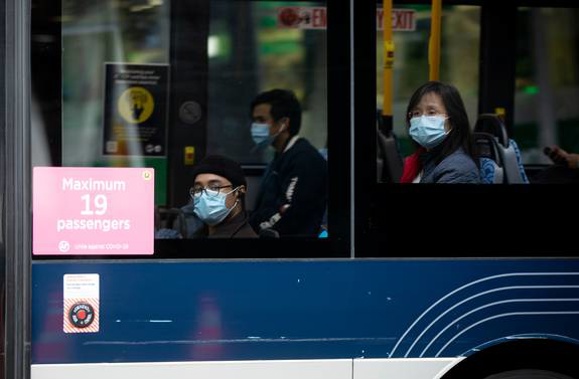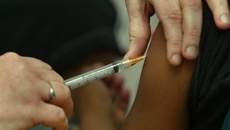
Today there are 7591 new cases of Covid-19 in the community, the Ministry of Health says.
A further 16 Covid-related deaths were reported.
There are 355 people in hospital with the virus, including 12 in intensive care.
Of today's reported deaths seven were from the Auckland region, three were from Canterbury, three were from the Wellington region, one was from Lakes, one was from Bay of Plenty, and one was from Southern.
These deaths take the total number of publicly reported deaths with Covid-19 to 1,102 and the seven-day rolling average is 12.
Two people were their 60s, two were in their 70s, eight were in their 80s, and four were aged over 90.
Today's community cases are in Northland (220), Auckland (2,520), Waikato (566), Bay of Plenty (221), Lakes (122), Hawke's Bay (211), MidCentral (258), Whanganui (91), Taranaki (250), Tairāwhiti (52), Wairarapa (77), Capital and Coast (538), Hutt Valley (220), Nelson Marlborough (308), Canterbury (1,110), South Canterbury (136), Southern (589), West Coast (95), Unknown (7).
In a week, the seven-day rolling average of cases has decreased by over 900.
Today it is 7095 and last Thursday it was 7981.
In the community, there 49,645 active cases.
Since the beginning of the pandemic, there has been 1,124,908 cases of the virus in New Zealand.
Today's cases in hospital are located in Northland: 11; Waitemata: 39; Counties Manukau: 21; Auckland: 57; Waikato: 25; Bay of Plenty: 8; Lakes: 5; Tairāwhiti: 1; Hawke's Bay: 19; Taranaki: 8; Whanganui: 5; MidCentral: 18; Wairarapa: 2; Hutt Valley: 34; Capital and Coast: 32; Nelson Marlborough: 9; Canterbury: 44; South Canterbury: 12; West Coast: 1; Southern: 35.
The average age of those hospitalised is 59.
Thirteen per cent of these people are unvaccinated, four per cent are partially vaccinated, 22.9 per cent are double vaccinated and 58.8 per cent have received their booster dose.
While the detection of a new variant of Omicron in the community wasn't anything to panic about, one expert says it's a reminder the pandemic was not over and should be taken seriously.
Yesterday, the Ministry of Health reported the first community case of the subvariant BA.2.12.1 in Hawke's Bay with no clear link to the border.
It announced 8150 new cases in the community yesterday and reported a further 11 Covid-related deaths, including a child under 10.
There were 368 people in hospital with the virus, including 11 in intensive care.
The ministry said the leak of the subvariant into the community was not unexpected.
""It's not a game-changer, it's not like Omicron was where all of a sudden we're going to get a massive peak [in cases] because of it," said Dr David Welch, senior lecturer at the University of Auckland's school of computer science.
Welch said the new subvariant was expected to become the dominant variant within, perhaps, a few months.
"It's not [a] panic station. I don't think anyone is going to be calling for a change in the alert level or anything like that. But it's another reminder this pandemic is far from over and while this disease is here with us, we need to take it seriously," he said.
University of Otago evolutionary virologist Dr Jemma Geoghegan said BA.2.12.1 had around a 10 per cent "growth advantage" over B.A.2, which meant it could infect people more efficiently.
Anything with a growth advantage could be expected to replace previous variants circulating in the community and could lead to an increase in cases.
Additionally, Omicron subvariants BA.4 and/or BA.5 have been detected in wastewater samples at Rosedale, on Auckland's North Shore, and in Gisborne.
The Ministry of Health confirmed there have been no confirmed cases of the two variants in the community to date.
However, 16 BA.4 and six BA.5 genomes have been detected in border-related cases.
The wastewater detections in Auckland and Gisborne could be from border-related cases but could also indicate community spread, the ministry said.
"We are investigating this further. ESR continues to apply a variety of genomic tools to track the variants that land in New Zealand."
Take your Radio, Podcasts and Music with you









